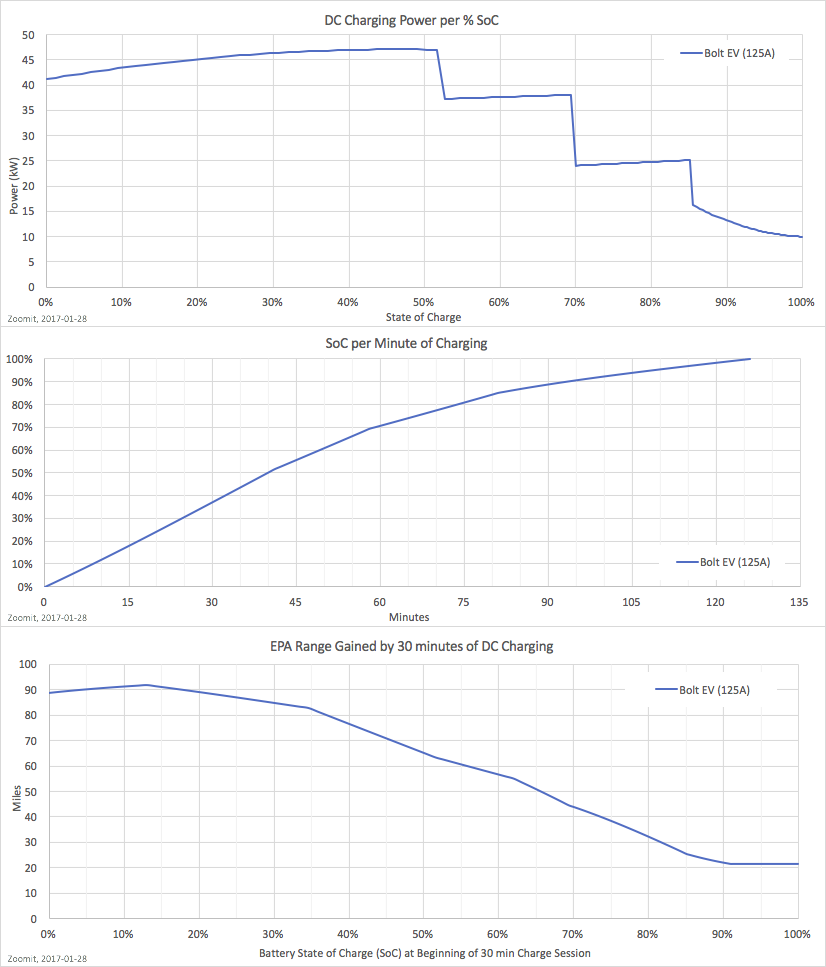BoltPals:
When considering the possibility of longer range travel with our new Bolts, I want to understand if my math is right. If I have a Bolt with say 1/2 the battery drained, and I use a Chargepoint DCQC with 24 kW max, if all goes well, I would add 24 kWh in one hour? So, at about 4 miles per kWh, I would then increase range by 96 miles? Similarly, with a 50 kW EVgo charger, 1/2 hour should supply 25 kWh, or a similar amount of mileage? Is this correct?
When considering the possibility of longer range travel with our new Bolts, I want to understand if my math is right. If I have a Bolt with say 1/2 the battery drained, and I use a Chargepoint DCQC with 24 kW max, if all goes well, I would add 24 kWh in one hour? So, at about 4 miles per kWh, I would then increase range by 96 miles? Similarly, with a 50 kW EVgo charger, 1/2 hour should supply 25 kWh, or a similar amount of mileage? Is this correct?

